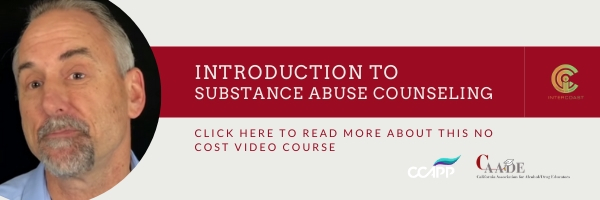Estimated reading time: 5 minutes
Explore the Substance Abuse Counseling Field
Substance abuse is one of the most challenging roads one can face. It can ruin careers and relationships, and it can cut a life short.
Substance abuse counselors are there to assist people in battling addiction. If you’ve ever been interested in substance abuse counseling, you might be surprised to find out you don’t need a master’s degree to get started.
Working as a substance abuse counselor is not for everyone. It can be challenging but incredibly rewarding. Find out if it’s right for you!
The Role of a Substance Abuse Counselor
If you are wondering just how severe drug and alcohol abuse is in the United States, take a look at these numbers from the American Addiction Centers website:
- In 2017, substance abuse affected almost 20 million adults.
- Three-quarters suffered from alcohol abuse.
- Over eight million battled the co-occurrence of mental illness and substance abuse.
- Addiction costs U.S. society over $700 billion annually in healthcare expenses, crime-related issues, and lost job productivity.
Substance abuse is a disorder all its own. It takes specialized training and the right experience to be able to treat it properly. This is where the role of the substance abuse counselor comes in.
What Does a Substance Abuse Counselor Do?
Also commonly referred to as addiction counselors, substance abuse counselors are accredited professionals trained to treat substance abuse disorders.
An addiction counselor deals with various issues that often come with drug and alcohol abuse. Problems such as eating disorders and behavioral issues are also prevalent and fall within an addiction counselor’s scope, depending on the level of experience.
In general, a substance abuse counselor’s responsibilities include:
- Evaluating a client’s physical and mental health, addictive habits, the severity of the addiction, and readiness to begin therapy.
- Working with clients–and their families, if appropriate–to create goals and a treatment plan.
- Helping clients identify addictive habits and giving them tools to modify their behavior.
- Refer clients to resources, such as support groups and job placement services.
- Creating outreach programs to educate their community about the signs of addiction and resources available and how to prevent addiction.
The venues can vary from private practices to hospitals, rehabilitation centers, correctional facilities, and community centers. While much of the work is one-on-one, many addiction counselors will work out of group settings.
At the heart of addiction counseling is empowering clients to deal with stress. Addictive habits often spiral out of control because people don’t have the coping mechanisms they need to deal with life’s challenges.
Because so much of addiction is embedded in a client’s everyday habits, an effective counselor must display strong interpersonal skills. Substance abuse counselors help their clients get sober through their reliable and empathetic presence.
To be an effective provider, a substance abuse counselor must be well-versed in the physiology of addiction. A drug counselor must also understand the socioeconomic factors that come with substance abuse.
Sounds like a lot of responsibility? It is, and there’s no wonder why the job requires a certain coursework level and some experience.
Addictions Counselor Certification
To be a licensed therapist generally requires a master’s degree and state licensure. Substance use disorder and many other types of issues fall under the scope of a therapist.
Licensed social workers–also a master’s degree–are qualified to work with substance abuse. Like licensed counselors, social workers can either work in a setting or go into private practice.
But did you know you can work as a substance abuse counselor without having to go the long road of getting a master’s degree?
It’s possible to become a substance abuse counselor with as little as a few college courses and relevant experience. You can effectively perform many of the significant responsibilities of a social worker or therapist, including:
- Clinical evaluation
- Treatment planning
- Case management and referral
- Client and family education and outreach
- Documentation
While you cannot work with clients one-on-one (only state licensure allows that), you can begin working in this critical field as a Certified Addictions Counselor (C.A.C.). Certification means you have relevant coursework in addition to supervised hours.
The requirements to become an addictions counselor are largely state-specific. However, you can seek out a national certification. Almost half the states recognize the NAADAC–National Association for Addiction Professionals as the gold standard in addictions counseling.
Even though this certification requires more extensive college coursework, it will allow you more leverage when applying for an addiction counseling job wherever you go.
If you are interested in becoming an addiction counselor, there’s no time to start like now. There’s no better place to begin than at Intercoast, with an Associate of Applied Science in Substance Use Disorder.
Whether you are confident in your choice to become a substance abuse counselor, or you are exploring the field, our core classes will give you the foundation you need to move forward.
Some of the subjects in the AAS Substance Use Disorder curriculum include: psychology, preventing and treating relapse prevention, case management, and community and mental health.
Also, our program includes supervisory hours so that you can graduate job-ready as a substance abuse counselor.
Do You Have What It Takes?
If you are interested in the field of substance abuse recovery, you are likely a compassionate person. To be a successful addictions counselor, you should also be an excellent listener and extremely patient.
If you have what it takes to treat addiction, your skills are needed now more than ever. There is a shortage of qualified people willing to take on the role. It’s a shortfall that the opioid crisis has worsened in the last few years.
Get Started Today
Working as a substance abuse counselor carries a great deal of responsibility. Some of the most vulnerable society members will rely on you to overcome one of the most devastating disorders imaginable: drug and alcohol abuse.
Nevertheless, the rewards can be immense. Earning a salary while helping people recover from addiction can lead to an incredibly fulfilling career.
Contact us today to get started with the online program.


